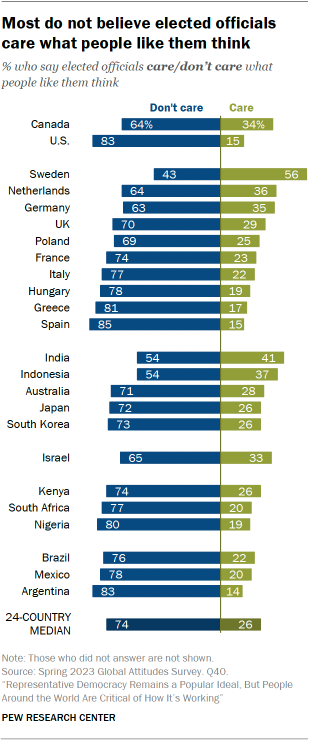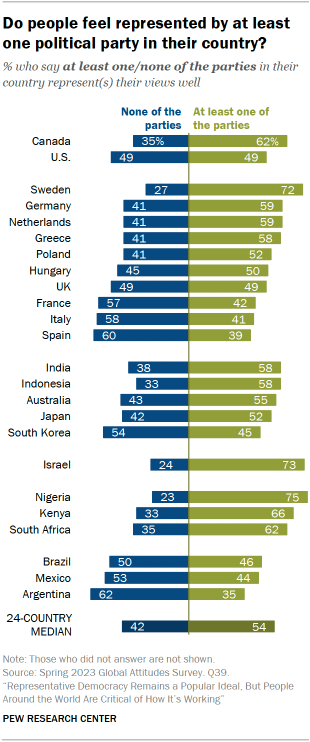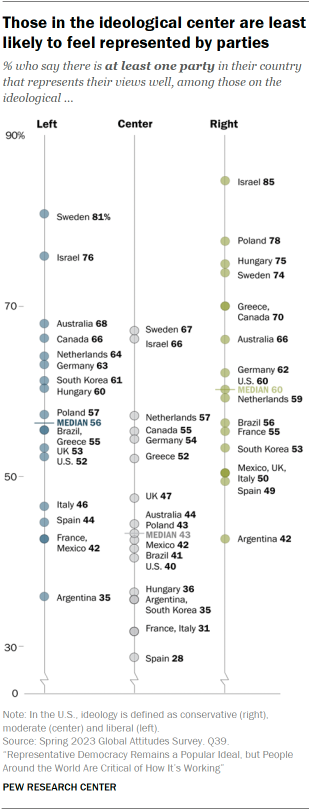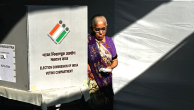Our survey finds that many people worldwide see room for improvement when it comes to how political parties, and especially elected officials, represent them.
A median of just over four-in-ten say there is no political party in their country that represents their views, and very few feel elected officials care what people like them think.
Views of elected officials

Across 24 countries, a median of 74% say elected officials do not care what people like them think, while 26% say the opposite.
In Argentina, Greece, Nigeria, Spain and the U.S., eight-in-ten or more say elected officials do not care about the opinions of people like them. And in another eight countries, roughly three-quarters or more hold this view.
Sweden is the only country surveyed where a majority (56%) of people believe that elected officials care what people like them think.
Factors related to views of elected officials
Economic situation: In every country surveyed, those who say the economic situation in their country is good are more likely than those who say it is bad to believe that most elected officials care about people like them. In Canada, 55% of those who give the economic situation a positive rating hold this view, compared with only 21% among those who rate the economy negatively.
Support for the governing party: In 19 countries, people who support the governing party are more likely than those who do not to say elected officials care what people like them think. For example, in Greece, there is a 31 percentage point difference between those who support the ruling party, the right-of-center New Democracy (39%), and those who do not (8%).
There are differences of 20 points or more in Canada, France, Germany, Hungary, Kenya, the Netherlands and Poland.
For more information on how we classify governing party supporters, read Appendix C.
How represented do people feel by political parties?

A median of 54% across 24 nations say at least one party in their country represents their views well, while 42% say none of the parties in their country represent their views well.
Israelis, Nigerians and Swedes are the most likely to feel represented by at least one party, with roughly three-quarters in each country holding this opinion. Meanwhile, more than half in Argentina, France, Italy, Mexico, South Korea and Spain believe none of the parties in their country represent their views well.
And in the U.S., opinions are divided. Equal shares say their views are represented by at least one party and by none of the parties.
Factors related to whether people feel represented by political parties

Ideology: In many countries, those in the ideological center are less likely than their counterparts on the left or right to say there is a party in their country that represents their views well.
For instance, in Hungary, 75% of those on the right say there is a party that represents their views well, while a somewhat smaller share (60%) of those on the left agree. But only 36% of those placing themselves in the ideological center say the same.
And in several countries, those on the right stand out as especially likely to believe at least one party represents them well.
Economic situation: In 18 countries, those who give the economic situation in their country a positive rating are especially likely to believe there is a party that represents their views well.
For example, in Japan, those who rate their country’s economic situation positively are 26 points more likely to feel represented by at least one party than those who view their economy negatively (74% vs. 48%).




